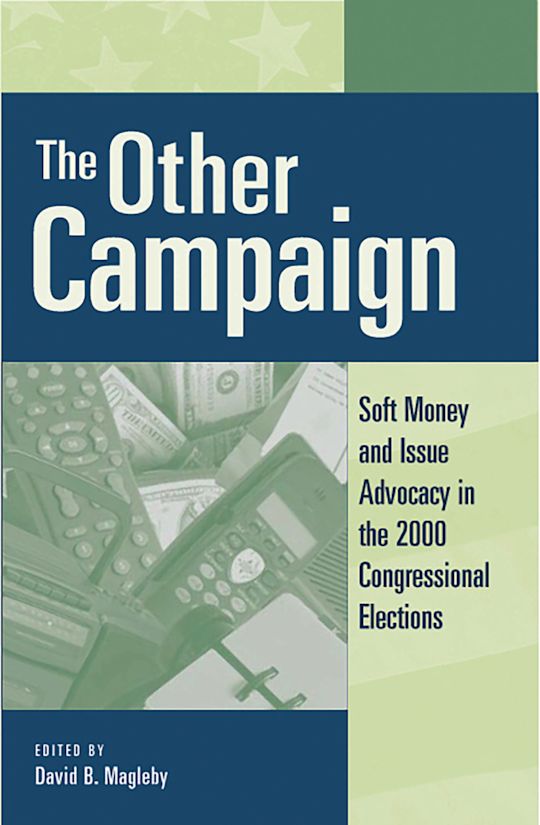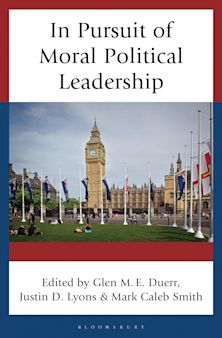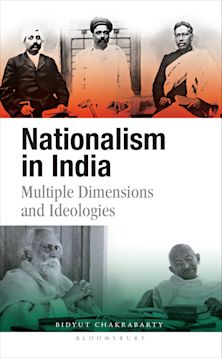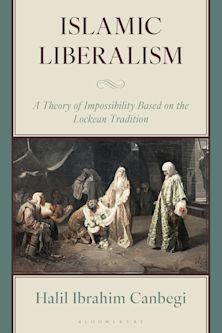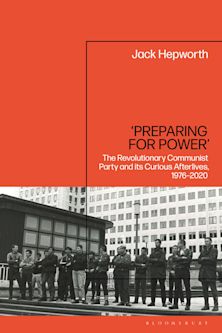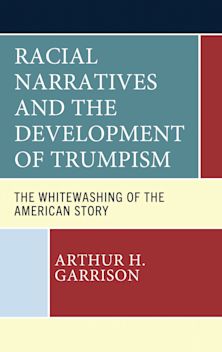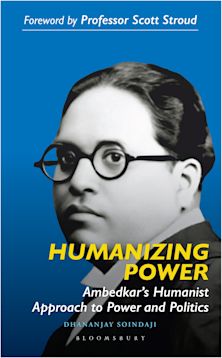- Home
- ACADEMIC
- Politics & International Relations
- Political Ideologies
- The Other Campaign
The Other Campaign
Soft Money and Issue Advocacy in the 2000 Congressional Elections
David B. Magleby (Anthology Editor) , Anna Nibley Baker (Contributor) , David C. Barker (Contributor) , Jason Richard Beal (Contributor) , Adam J. Berinsky (Contributor) , Christopher Jan Carman (Contributor) , Sue Carter (Contributor) , Todd Donovan (Contributor) , Robert Dudley (Contributor) , Eric Freedman (Contributor) , Robert Holsworth (Contributor) , Scott Keeter (Contributor) , Susan S. Lederman (Contributor) , Drew A. Linzer (Contributor) , Stephen K. Medvic (Contributor) , David Menefee-Libey (Contributor) , Charles Morrow (Contributor) , Eric A. Smith (Contributor) , Michael Traugott (Contributor) , Craig Wilson (Contributor) , Harry L. Wilson (Contributor)
The Other Campaign
Soft Money and Issue Advocacy in the 2000 Congressional Elections
David B. Magleby (Anthology Editor) , Anna Nibley Baker (Contributor) , David C. Barker (Contributor) , Jason Richard Beal (Contributor) , Adam J. Berinsky (Contributor) , Christopher Jan Carman (Contributor) , Sue Carter (Contributor) , Todd Donovan (Contributor) , Robert Dudley (Contributor) , Eric Freedman (Contributor) , Robert Holsworth (Contributor) , Scott Keeter (Contributor) , Susan S. Lederman (Contributor) , Drew A. Linzer (Contributor) , Stephen K. Medvic (Contributor) , David Menefee-Libey (Contributor) , Charles Morrow (Contributor) , Eric A. Smith (Contributor) , Michael Traugott (Contributor) , Craig Wilson (Contributor) , Harry L. Wilson (Contributor)
You must sign in to add this item to your wishlist. Please sign in or create an account
Description
In the wake of the Enron and World Com debacle, campaign finance reform has once again ascended to the top of the congressional agenda. Outside money-party soft money as well as special interest dollars-continues to influence election results and affect public policy even as its sources remain obscure. In The Other Campaign, David B. Magleby and his contributors follow the money trail to show a different side of electoral politics-beyond the bandboxes and stump speeches and into the inner workings of sophisticated campaign communications and noncandidate campaigning. Focusing on 9 highly competitive races in both the House and Senate, this book shows the positive and negative effects of outside money and enlightens the debate over campaign finance reform with its extensive and original data analysis.
Table of Contents
Chapter 2 2 Party Soft Money in the 2000 Congressional Elections
Chapter 3 3 Interest Groups in the 2000 Congressional Elections
Chapter 4 4 Independent Expenditures and Internal Communications in the 2000 Congressional Elections
Chapter 5 5 The 2000 Michigan Senate Race
Chapter 6 6 The 2000 Virginia Senate Race
Chapter 7 7 The Montana 2000 Senate and House Races
Chapter 8 8 Opening the Floodgates: Campaigning without Scarcity in the 2000 California Twenty-Seventh Congressional District Race
Chapter 9 9 The 2000 Michigan Eighth Congressional District Race
Chapter 10 10 The 2000 New Jersey Twelfth District Congressional District Race
Chapter 11 11 The 2000 Pennsylvania Fourth Congressional District Race
Chapter 12 12 The 2000 Washington Second Congressional District Race
Chapter 13 13 Conclusions and Implications for Future Elections
Part 14 Appendix A List of Interviews
Product details
| Published | 23 Jul 2002 |
|---|---|
| Format | Ebook (Epub & Mobi) |
| Edition | 1st |
| Extent | 288 |
| ISBN | 9781461714866 |
| Imprint | Rowman & Littlefield Publishers |
| Publisher | Bloomsbury Publishing |
About the contributors
Reviews
-
By providing the most complete and in-depth account available of the impact of outside money in key competitive House and Senate races that in 2000 determined party control of Congress, Magleby and his associates provide invaluable and fresh insights into the realities of the electoral process-the expanded role of parties and soft money, the differences between the Republican and Democratic parties, the growing importance of issue advocacy, and the impact of party allied groups. This well-documented analysis of party, interest group, and candidate activities will force political scientists, journalists, and citizens to reexamine how they view the electoral process. It also provides essential information for dealing with a major issue of public policy-campaign finance reform. A must-read for students of parties and elections.
John F. Bibby, University of Wisconsin, Milwaukee
-
The Other Campaign provides important data and keen insights into how soft money and issue advocacy impact competitive congressional elections. Among the implications of the surge in outside money are reduced candidate accountability, less effective disclosure, and more negative campaigns. This is an important book for all who care about the viability of elections and democracy.
Senator Jim Jeffords
-
In my work on campaign finance reform, I came to know Dr. Magleby as an academic leader in charting the largely uncharted waters of outside money in political campaigns. With the veritable explosion of these expenditures for which so little disclosure isrequired, Dr. Magleby's contributions to our knowledge on this subject are all the more importantttt
Senator Olympia Snowe
-
Unlike the typical edited volume, The Other Campaign is a coherent project, in which Magleby and his colleagues seek to better understand this extremely important topic. A good source for Congress and campaign specialists.
Choice Reviews
-
Provides the most detailed accounting ever of the role of soft money and issue advocacy in congressional elections. This is a well-edited volume with a very carefully orchestrated design. It offers new insights to students of congressional elections and campaign finance.
Perspectives on Politics
-
The Other Campaign, by focusing on closely contested races, details all of the recent changes in congressional elections writ large-the increasing costs of funding them, the greater involvement of national party committees and interest groups in them, and the growing freedom of money funding them from legislated limits or public disclosure. No one seriously concerned with reforming American campaigns or their financing can afford to ignore this book.
Frank J. Sorauf, University of Minnesota









